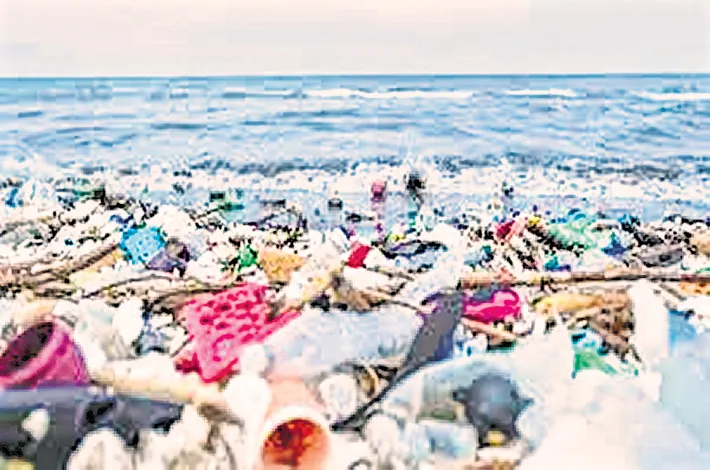Plastics threaten health ‘from cradle to grave’
05-08-2025 12:00:00 AM

A landmark expert review published in ‘The Lancet’ warns that the global “plastics crisis” is causing disease and death across all age groups - from infancy to old age - and is responsible for at least $1.5 trillion a year in health-related damages.
Plastic production has skyrocketed more than 200-fold since 1950 and is projected to almost triple again by 2060, reaching over a billion tonnes annually. While plastics serve many essential functions, the fastest growth has been in single-use items like bottles and food containers. With only 10% of plastic ever recycled, an estimated 8 billion tonnes now pollute the planet - from Mount Everest to the deepest ocean trenches.
The report emphasizes that plastics harm people and ecosystems at every stage: from the extraction of fossil fuels to production, use and disposal. These processes release air pollutants, expose people to toxic chemicals, and infiltrate human bodies with microplastics. Stagnant water trapped in littered plastic also creates breeding grounds for disease-carrying mosquitoes.
“We know a great deal about the range and severity of the health and environmental impacts of plastic pollution,” said Prof Philip Landrigan, a paediatrician and epidemiologist at Boston College and lead author of the report. “The impacts fall most heavily on vulnerable populations, especially infants and children. They result in huge economic costs to society. It is incumbent on us to act in response.”
The publication comes ahead of the final round of UN negotiations for a legally binding global plastics treaty. More than 100 countries support a cap on plastic production, but petrostates such as Saudi Arabia oppose it. Plastic recycling, often promoted by industry, is no longer a viable solution. “It is now clear that the world cannot recycle its way out of the plastic pollution crisis,” the report stated. Most plastics - over 98% - are derived from fossil fuels, contributing around 2 billion tonnes of CO2 annually, more than Russia’s total emissions.
Containing more than 16,000 chemicals - many unregulated or undisclosed - plastics pose risks at every stage of life, including cancer, birth defects and fertility issues. Micro- and nano-plastics have been detected in blood, brains and even placentas, with links to strokes and heart attacks. A senior lawyer and one of the report’s co-authors Margaret Spring said, “The reports will offer decision-makers a robust and independent data source to inform the development of effective policies addressing plastic pollution at all levels.”








